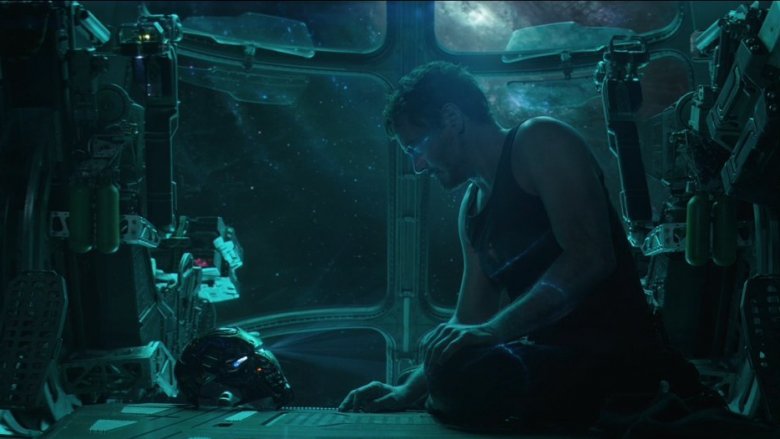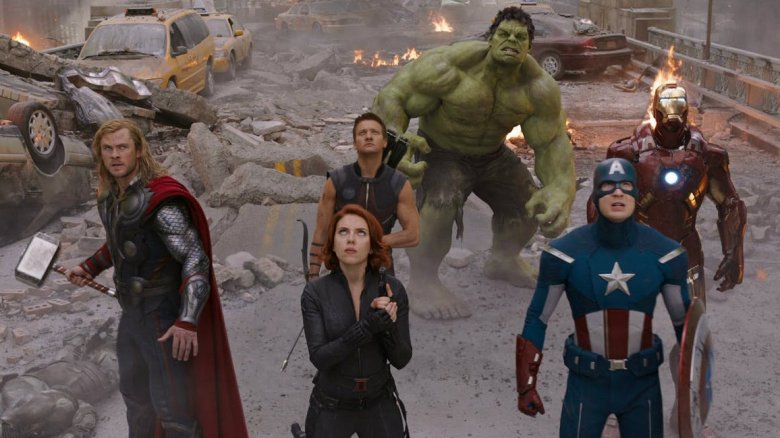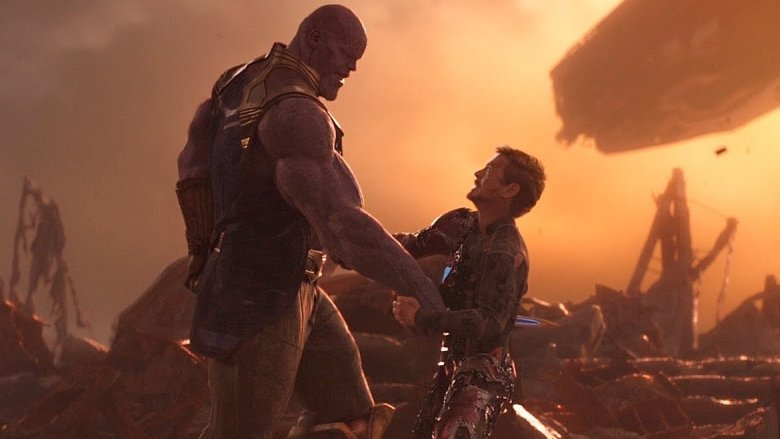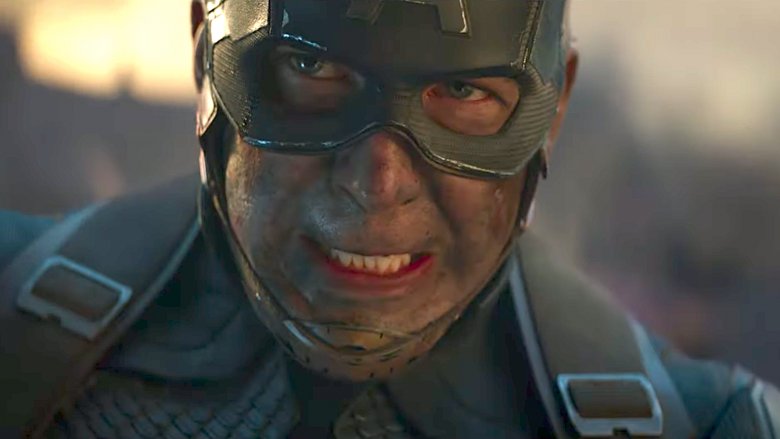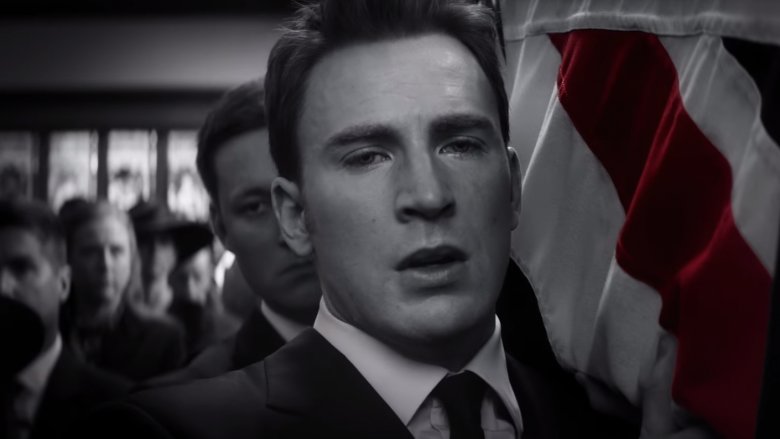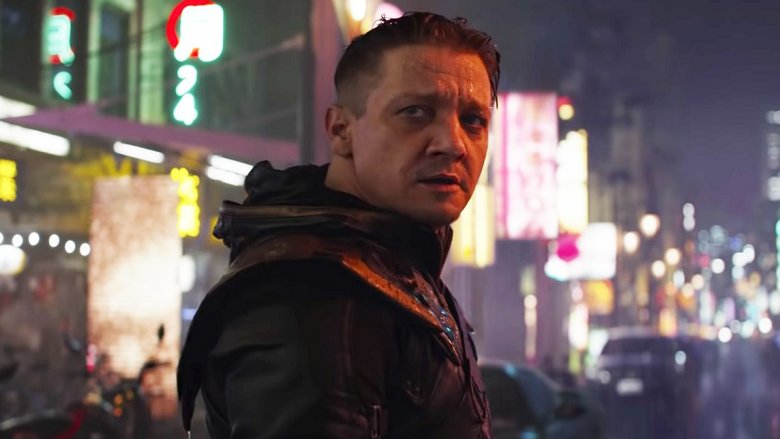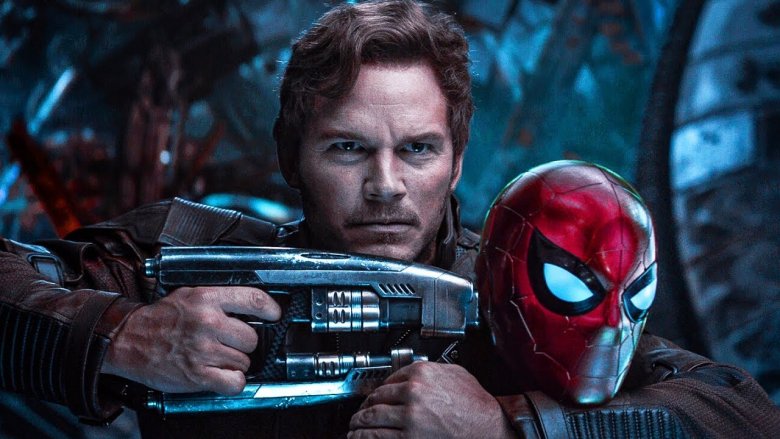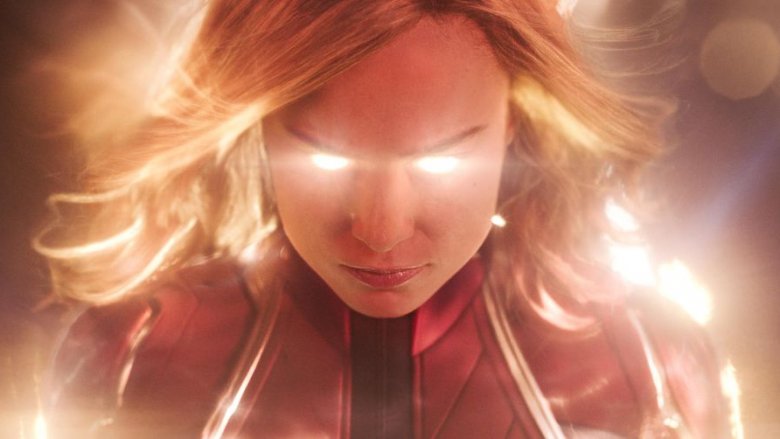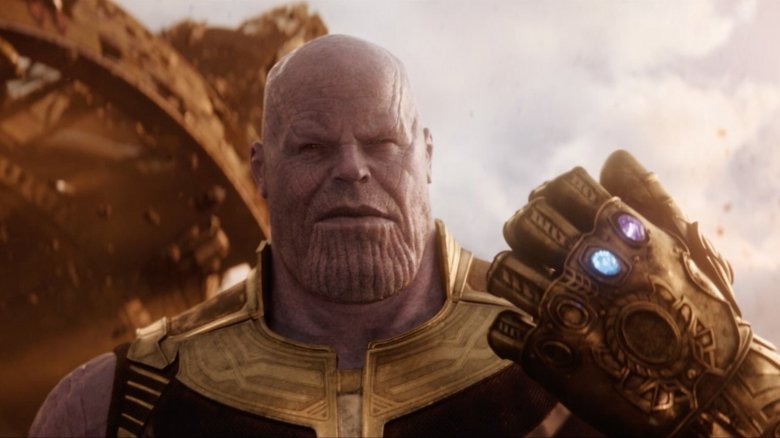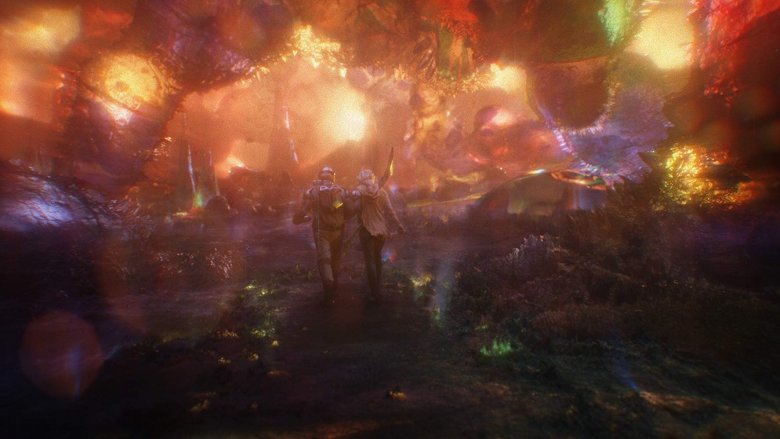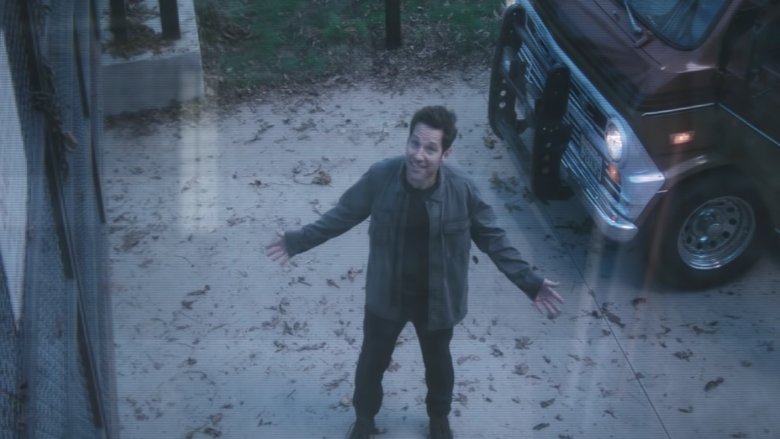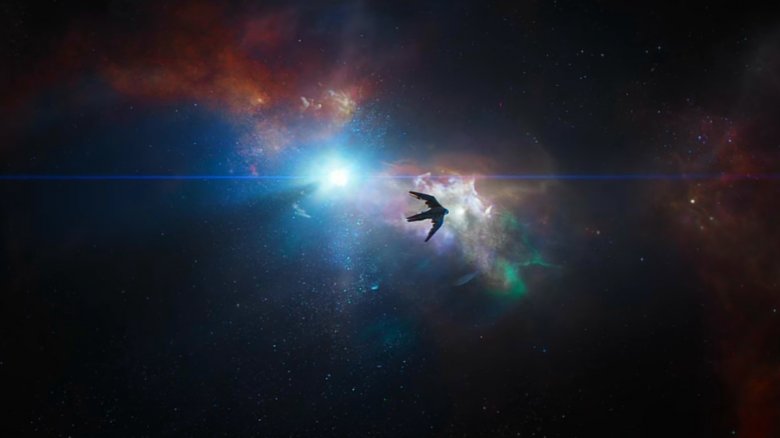How Avengers: Endgame Will Change The MCU Forever
Phase 4 of the Marvel Cinematic Universe promises to bring a lot of changes, with A-list characters like the Fantastic Four and X-Men finally in the cards and James Gunn officially rehired for the third Guardians of the Galaxy film. While some of these developments stand on their own, many others are sure to be direct consequences of Avengers: Endgame. The climactic finale of Phase 3 will wrap up several long-running character arcs as well as integrate some newer faces into the MCU canvas. It's also poised to rapidly expand on largely unexplored concepts like the Quantum Realm.
The film even appears to have pushed the envelope behind the scenes, specifically in terms of the scope of its production and its unique form of promotion. All in all, there's no doubt that Endgame will have a dramatic effect on the Marvel landscape, shifting the tone and rewriting the script going forward. Here are some of the many different ways that Endgame will change the MCU.
The breaking of the fellowship
The details of actors' contracts can be tricky to pin down, and it's only made worse with MCU stars thanks to Marvel's notoriously tight-lipped style of doing business. However, there's little doubt that Endgame is the end of the line for at least some — if not most — of the original six Avengers. Chris Hemsworth hinted in early 2018 that he was hanging up his hammer as Thor, while Chris Evans teased an emotional farewell in the fall of the same year. In addition, both Vanity Fair and Time have reported that Endgame finds all six actors either at or near the end of their contracts.
There's always the possibility of renegotiating — Robert Downey Jr. has already done so multiple times at this point. But odds are, whether it comes via retirement or the Grim Reaper, one way or another Endgame is going to be the swan song for the original band of heroes. It's a heartbreaker, as the MCU has largely revolved around these characters for over a decade. Of course, with so many new adventures on the horizon, Marvel is sure to keep things exciting, but it's hard to imagine a Marvel Universe where characters like Hulk, Thor, and Black Widow aren't getting in on the action.
Tony Stark
While there are many familiar faces that could be missed, the hardest pill to swallow coming out of Endgame will probably be the loss of Tony Stark. When Robert Downey Jr. told the press that he wanted his MCU career to end on a high, the message was pretty clear: the days of extending his contract were coming to a close. While all good things come to an end, the absence of Stark from the larger storyline is almost impossible to imagine.
The reformed billionaire playboy has managed to influence nearly every corner of the MCU. He's been around since day one, was pivotal in forming the Avengers, and has acted as a linchpin for the entire Infinity Stone epic. Not only did he have that prophetic vision in Age of Ultron, but Thanos' evident respect for the hero just underscores how much Tony Stark is the glue that's held the MCU together thus far.
What happens when that glue is removed? It's a question that will be answered soon enough... on the other hand, there's always the hope that he'll relent and go for yet another contract extension. Hey, one can dream, right?
Steve Rogers
Chris Evans alarmed fans when he penned what appeared to be an emotional farewell after he finished the last reshoots for Endgame in October 2018. The uproar died down a bit when Vanity Fair reported co-director Joe Russo's comment that Evans was "not done yet," but the Russos have toyed with fans' expectations before — and no matter what either of them might say publicly, all signs continue to point to the likelihood that Steve Rogers, may finally, tragically do "whatever it takes" in Avengers: Endgame.
While the possibility of death, or even a comfy retirement, for Captain America would add some real dramatic stakes to Endgame, the implications that it could have on the MCU going forward are just as significant. Like Tony Stark, Steve Rogers has had a prolonged impact on both the Avengers and the MCU as a whole. He's served as the group's moral compass opposite Stark's ego and occasionally dangerous genius, bringing heart and soul to the entire operation. New characters like Captain Marvel mean it will be easy to make sure the Avengers have all the muscle they need moving forward. But it's hard to imagine who could take Captain America's place if he bows out during Endgame.
The death of a hero
The creators at Marvel have always had a hard time letting go of their superheroes. No matter how difficult the scenario, the sacrifices required have hardly ever resulted in the literal, irrevocable death of a hero. During Captain America: Civil War, when Team Iron Man and Team Cap literally came to blows, the worst results were War Machine's injuries and some seriously damaged relationships. While there have been a couple of onscreen superhero deaths (including Quicksilver in Avengers: Age of Ultron and Gamora in Infinity War), Quicksilver was hardly developed enough to seriously miss — and Zoe Saldana, who plays Gamora, has already confirmed that she'll be back.
In Endgame, however, there's the distinct possibility that we'll finally see a sacrifice that could end in the death of a hero. Anthony and Joe Russo have remarked more than once that they're determined to underscore the action here with real-world stakes. In an interview with Variety after Infinity War came out, Anthony Russo warned fans that this could have a major impact in Endgame; although he admitted that "remarkable things can happen in a fantasy world," his brother and co-director Joe added that "they come at an incredibly high cost." If Endgame manages to finally let go of one or more of the lead Avengers — say Captain America or Iron Man, for example — it could completely reshape the MCU canvas heading into Phase 4.
Changing the tone
Endgame is primed to continue the shift in tone that fans saw at the end of Infinity War. While there will always be films like Thor: Ragnarok and the Guardians of the Galaxy franchise to keep us laughing, the future of the MCU seems to be heading in a more serious direction. Up until recently, Marvel's universe has tended to be bright and colorful, in its visual aesthetic as well as its dialogue. Comic relief was a constant and a certain self-awareness of the suspension of disbelief was always present.
However, as Phase 3 wraps up, the future of the MCU is looking serious. Case in point: the Decimation. As far as possible from a high note, Infinity War ended with half of the life in the universe gone. And while it was technically the first half of a two-part story, the conclusion seems to only be offering us another dose of heartbreak as the team strives to fix the damage. Is the end of Phase 3 simply a blip on the otherwise lighthearted Marvel universe? Not likely. The higher stakes in Endgame will have repercussions that will be felt throughout the MCU for years to come.
Coming together
The primary narrative of the MCU so far has tended to focus on Earth-bound heroes — especially, the Avengers. Of course, Thor came from Asgard, but his storylines tended to move between his own kingdom and Earth. Characters like Doctor Strange and Ant-Man have developed their own storylines, but even they have been sucked into the Avenger action from time to time. There's one group, though, that had never met the Avengers up until Infinity War: the Guardians of the Galaxy.
Throughout Infinity War the two groups of heroes crossed paths on Titan and in Wakanda. After a brief but hostile encounter on Saturn's moon, the two teams synced up and formed a united front against Thanos that was stronger than even the Avengers could manage themselves. The trailers for Endgame have already shown multiple shots with Guardians and Avengers working together, from Tony Stark and Nebula stranded in space to a much larger group heading through the Avengers HQ hangar in their new suits. The alliance is a fun one to watch play out in Endgame, and the possibility of seeing the two superhero groups working together in the future is a tantalizing prospect.
A new leader for the Avengers
Marvel chief Kevin Feige has gone on record to say that Captain Marvel wasn't just an exciting new face for the franchise — she was also, quote, "as powerful a character as we've ever put in a movie." Feige's confirmation that Carol Danvers is the mightiest hero in the MCU hardly came as a surprise to anyone who saw Captain Marvel, but the MCU's head honcho also casually dropped a little more information on Danvers regarding her future status in the franchise:
"Captain Marvel is about to take the lead and be the forefront of the entire cinematic universe."
While it's unclear just what "taking the lead" will mean after Endgame's credits roll, Danvers is a great character to head up the MCU's ongoing story. So will she actually lead the Avengers — as some fans have taken Feige's statement to mean? The team already has a pair of de facto leaders in Tony Stark and Steve Rogers... and with Downey and Evans' contracts reportedly coming to a close after this film, there's at least a possibility that their interpretations could turn out to be correct. Either way, it's at least nice to know that Marvel has another leader already waiting in the wings — in addition to still under-explored characters like Black Panther and Doctor Strange. Assuming they return to the MCU by the third act of Endgame, there are plenty of leaders in addition to Danvers ready to take up the Avengers' mission after Cap and Iron Man ride off into the sunset.
Sagas
In an interview with Empire Magazine (via ComicBookMovie.com), Kevin Feige dubbed the first 22 MCU movies "The Infinity Saga," adding that Marvel execs "wanted to bring to a conclusion a series of movies in a way that had never been done before." It's a fitting moniker, as the Infinity Stones have featured heavily throughout all three phases, with multiple Avengers' powers even originating from them.
While the Infinity Saga has been a heck of a ride all on its own, one side effect of Feige's comment is that it has added yet another layer to categorizing MCU films. Now, in addition to "phases," we also have "sagas." While anticipation for Phase 4 has long since reached a fever pitch, especially with Marvel about to take a year off before releasing any new films, the next thing we need Feige to tell us is what the next saga is going to be titled... unless, of course, he's planning on making us wait for over ten years and 22 more movies before we get that answer, too.
The Quantum Realm
The pair of Ant-Man films that took place within the Infinity Saga didn't have too much of an effect on the greater Avengers storyline. Sure, he showed up in supersize mode during the airport encounter in Captain America: Civil War, but that was about it. Even after Infinity War, Ant-Man and the Wasp stayed fairly narrow in its scope until the credits scene showed us the fate of the Pyms — and where Scott Lang happened to be when Thanos snapped.
The second film, in particular, also dove deep into the concept of the Quantum Realm. Hank Pym, Hope van Dyne, and Scott Lang spent the majority of the story trying to get to the Quantum Realm and back in order to try to save Janet van Dyne, who returned with a ton of new information about the otherworldly region.
While Ant-Man and the Quantum Realm seem certain to play a role in Endgame, Hank Pym actor Michael Douglas took things a step further during an interview on On Air with Ryan Seacrest, emphatically declaring that "the Quantum Realm, that's the key. The Quantum Realm plays an important part in all the next chapters, I think, of the Marvel films." It seems the Quantum Realm will be front and center in the MCU for quite a while.
The longer the better
In an interview with Collider in February of 2019, Joe Russo explained that Endgame was "still at the three-hour mark," while in another interview with the same publication, Kevin Feige added that even if it came in at over three hours, it would be "the exact running time that the movie needs to be." Since then, an apparently mistaken early AMC Theaters listing seems to have revealed that Endgame clocks in at a staggering 182 minutes. It all reinforces the long-anticipated belief that the film would top three hours, making it the longest movie of the entire Infinity Saga.
That's all fine as far as hardcore Marvel fans are concerned, and the gargantuan Endgame storyline will certainly be able to comfortably fill a three-hour runtime. Infinity War, which clocked in at two hours and 40 minutes, had already bumped up the "longest runtime" MCU marker by a dozen minutes. Endgame is only going to extend that boundary by another 22. The question is, are three-hour-plus films going to become the norm now? Even if that's the case, it's hard to imagine the majority of filmgoers complaining at this point, especially while Marvel is hitting it out of the park with every project.
Bigger costs
In early 2018 Disney revealed that, up to that point, Avengers: Age of Ultron was the most expensive Marvel film ever made, with its costs adding up to just shy of half a billion dollars. Extravagant? Perhaps. But with most of these blockbusters raking in a billion or more at the box office alone, the costs were justified.
But the pricey productions didn't stop there. The third and fourth Avengers films were rumored to have a billion-dollar budget at their combined disposal, with both features being filmed back to back. That said, Disney's report also showed that Infinity War reined in the expenses to just under a third of a billion, leaving over $600 million available to finish off the story.
While the astronomical size and scope of Endgame certainly have the potential to use up a budget that large, it begs the question: how does that lavish spending change the standard for future Marvel movies? Is that going to be par for the course in a few years? If so, you can bet your — or Disney's — bottom dollar the already impressive quality of most MCU films is about to be turned up a notch.
False advertising?
The Russo brothers have certainly had a fun time toying with fans as they've promoted Infinity War and Endgame. Remember that clip in the Infinity War trailer showing everyone — even the Hulk — charging together? When the film came out, the Hulk was nowhere to be seen. It happened again with speculation surrounding the Avengers 4 title, when Joe Russo denied that the name was ever spoken in Infinity War. And then, hey presto! We get Endgame, a word literally spoken by Doctor Strange during the movie.
The misdirections didn't stop there,. Not long after the second trailer for Endgame dropped, the Russos made it clear that they were more than willing to manipulate the footage or even use shots that wouldn't end up in the film in order to tell a story "specifically for the purpose of the trailer and not for the film." This tantalizingly frustrating promotion has done wonders to hype up Endgame without definitively giving anything away. The greater question here, though, is will it be repeated? The Russos just might have tapped into a new formula that will allow fans to get excited about future projects while still enabling them to go into the films blind.
